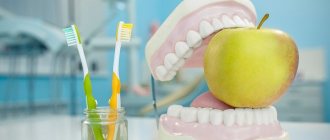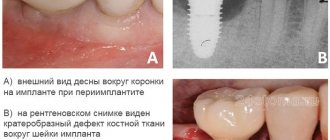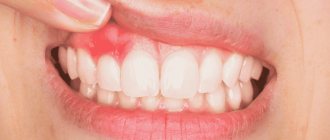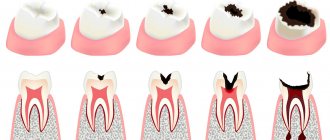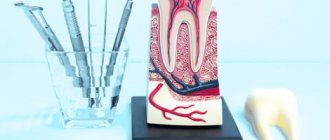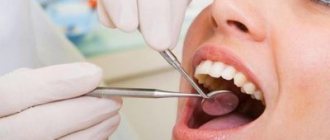Find out more
( 2 ratings, average: 5.00 out of 5)
Eating after 6 pm is a bad habit because the stomach does not have enough time before bed to digest food well. Eating before bed can lead to poor sleep quality, metabolic problems, a feeling of heaviness in the stomach, and other problems. Of all the rules that relate to weight loss, the secrets of not eating after 6 pm are the most common. Is there anything special about evening time? Why does eating before bed make you gain weight? This is true. Many foods simply do not have time to be digested; as a result, they become a burden in the gastrointestinal tract and do not provide any benefit. Moreover, during this period the body is already preparing for sleep, and all calories eaten during the “forbidden time” will go into fat tissue, and not into energy. Of course, you can overcome this habit on your own if you sort everything out.
Why can’t you eat or drink before surgery?
Sometimes you should not eat or drink before surgery or other medical procedures.
It depends on what kind of surgery you are having and what kind of anesthesia you will need. Before elective surgery or other medical procedures, your doctor or nurse will ask you not to eat or drink anything. If you are undergoing local anesthesia, you will most likely not need to fast from food. Local anesthesia numbs a small area of the body and can be used as an ointment, spray, gel or injection.
Features of light seals
The composition of the light filling, as well as the technique of its installation, differs from other composite materials. The photopolymer contains a mixture of resins, fillers and silanes. This material hardens only under the influence of ultraviolet radiation, which affects the filling technique. To restore the integrity of the crown, the dentist applies the composition in layers, using a special blue lamp after each layer.
Photopolymer fillings have advantages over other types of composites:
- plasticity of the composition and controlled hardening - the specialist has the opportunity to apply the material without haste, which will avoid the formation of gaps or the creation of an unaesthetic surface of the dental crown;
- minimal content of toxic substances in the composition - due to the low level of toxins, there are practically no contraindications for the use of the material regarding the health status and age of the patient;
- simplified final processing - the composite can be easily polished, which makes it possible to create a smooth surface that prevents damage to the enamel of the opposite tooth, tongue and soft tissues;
- the ability to select an individual shade - the material can be almost identical in color to other teeth;
- natural shape - the plasticity of the composite allows the specialist to create the shape of a natural crown;
- service life - if the recommendations are followed, the seal will last at least 5 years.
The light filling has one significant drawback - the composite is not used when lesions are too large, or in hard-to-reach places.
You will need to refrain from eating and drinking if you are going to:
- General anesthesia. This type of anesthesia turns off the patient's consciousness. You see nothing, hear nothing, feel no pain, your muscles completely relax, and after the operation there are no memories of it. Some types of general anesthesia are given intravenously, sometimes it is a gas that you are given to inhale.
- Regional anesthesia. This type of anesthesia numbs any part of the patient's body, for example, a leg, arm, or lower half of the body. Typically, the numbing agent is given through a catheter or injection.
- Sedation. These are sedatives, after which a person relaxes and can fall asleep. Sedatives are injected into a vein using an injection or catheter.
How long does pain last after tooth extraction?
During the removal procedure, the tissue that surrounded the tooth is injured and the gums become inflamed. Due to the effect of anesthesia, the patient does not feel pain immediately after removal. But after a couple of hours, pain may occur. Over time, the pain becomes less and less. The duration of pain depends on numerous factors:
- The patient takes medications prescribed by the doctor to speed up healing.
- Complexity of the procedure.
- Strict compliance with all instructions and recommendations of a specialist.
After a complex removal, pain can spread not only to the gums, but also to the cheek, as well as to neighboring teeth. The healing process after such manipulation will take a little longer. Swelling after tooth extraction usually goes away within a couple of days. If, several days after the procedure, swelling and pain do not go away, then this may be a symptom of the development of complications. In such a situation, you must immediately seek the help of a specialist. In our 3D dental clinic "NovaDent" all surgical procedures are performed using high-quality modern anesthesia. The consultation is conducted by experienced, qualified dental surgeons who remove teeth as carefully as possible. We try to create comfortable living conditions for our patients, and do everything possible to minimize the risks of complications after removal. By making an appointment with our dentistry, you will receive a detailed consultation, be able to undergo highly accurate diagnostics, and also receive high-quality dental services using modern equipment using reliable materials. Sign up right now on our website using the registration form or call the administrators, who will be happy to find a convenient appointment time for you - we work seven days a week and weekends. Phone number to make an appointment with our specialists. Trust your health only to professionals!
How many hours before surgery should you not eat or drink?
Different in different clinics. Just follow your doctor's and nurse's instructions. For example, they may ask you:
- Do not eat solid food after a certain hour the day before surgery. Do not drink milk or cream (even a spoon in tea or coffee counts). The milk curdles in the stomach and turns into small clots;
- drink only completely liquid drinks (water, juice without pulp, tea), but no later than two hours before surgery:
- stop eating or drinking anything two hours before surgery.
There may be other instructions, for example, if you have eaten a lot, you will have to abstain from food longer. You may be told not to chew gum or suck on candy after a certain hour.
There are special rules for babies and small children. Most clinics will allow you to breastfeed your baby four hours before surgery. Formula will have to be fed earlier because it stays in the stomach longer. Your doctor or nurse will give you detailed advice.
Finding the cause of uncontrollable appetite after 6 pm
Emotional and physical hunger
Sometimes you want to eat at such times, because the body is really hungry, especially if it did not receive enough calories during the day. In other cases, night eating occurs due to emotional hunger. Determining whether evening snacking is physical or emotional is an important step in addressing the problem. To decide, you need to answer the following questions:
- Does hunger appear suddenly or gradually? Emotional hunger most often manifests itself in the form of sudden attraction. Physical hunger comes gradually.
- What exactly do you want to eat? When a person experiences emotional hunger, they are more likely to crave sweet or salty junk food than something substantial. And the list of foods that can be eaten after 6 fades into the background.
- How many calories did you eat during the day? If a person is on a calorie-restricted diet or skipping meals, they are likely to feel physically hungry in the evening. However, if there was no such problem, hunger is emotional in nature.
- Was breakfast missed? If so, it makes you crave mindless snacking throughout the day. Skipping breakfast is especially bad for those people who like to reward themselves with food in the evening after a working day.
- How many snacks did you have? Sometimes eating small "empty calorie" snacks (snacks, cookies, soda, etc.) results in less food being eaten during dinner. Naturally, after a short period of time, the stomach will understand that it is missing something.
Emotional hunger most often manifests itself while watching movies on the computer or on TV, light reading, traveling on the Internet, etc. At the same time, the brain is completely focused on the main activity, and not on what is currently happening to the stomach. It’s not for nothing that they say that while watching a movie you can eat much more food than you need.
How to control hunger hormones?
The four main hunger hormones are often responsible for the desire to eat after 6 pm. An abundance or deficiency of insulin, leptin, ghrelin, peptide YY, or cortisol can lead to unnecessary snacking.
- Insulin helps the body process sugar. Insulin levels tend to rise significantly after consuming empty calories in the form of refined sugar and processed wheat. The peak is temporary, and then you will feel hungry again. Sugary foods, white bread and pasta should be avoided, especially during lunch, as this can help maintain normal insulin levels and prevent unwanted hunger.
- Leptin is a hormone that is primarily responsible for telling the brain that you are full of food. However, increasing consumption of sugar, flour and processed foods interferes with this process. Again, avoiding sugary, processed foods throughout the day allows leptin to adequately protect the body from overeating.
- Ghrelin is a hunger hormone and helps regulate appetite. This allows a person to know when to eat. As with the above-mentioned hormones, it can be exceeded due to unsustainable eating habits and poor quality food. Therefore, every day you need to get foods based on whole wheat, fruits and vegetables, and lean proteins.
- Peptide YY is a hormone found in the gut that, like leptin, helps the body know it has enough food. When the intestines are not supplied with healthy calories, peptide YY will signal that more food is needed, even if the person has just eaten. Therefore, you need to eat nutritious meals, not sweets and snacks.
Another hormone that affects the desire for food after 6 is cortisol, a stress hormone. Although cortisol levels are less related to hunger than the above hormones, they do cause insulin and blood sugar levels to rise. This causes hunger. In other words, stress can lead to overeating. Meditation, various physical exercises, and communication with loved ones will help you cope with stress.
What about weight loss with fractional meals?
Constant consumption of food, even in small portions, disrupts the biological clock and forces the gastrointestinal tract to constantly work, which does not contribute to weight loss.
And if the benefits of split meals up to five times a day are questioned by scientists, then eating six or more times a day can harm your health. Those who eat too frequently have an increased risk of developing various diseases. Apparently, it is not the fact of eating that plays a key role for the body, but the interval between meals. Fasting for 12–16 hours increases insulin sensitivity, reduces appetite, systemic inflammation, and blood cholesterol levels.
In addition, there is evidence that when providing the specified “hungry” interval, there is an increase in the production of brain neurotropic factor, which is responsible for cognitive functions and neuronal growth.



